Hungry for help: refugees in Kenya feel the effects of recent food cuts
KAKUMA REFUGEE CAMP, Kenya, January 9 (UNHCR) – Nyachot squints up at the midday sun above Kakuma Camp as she stirs the daily meal for her family. Before last November, the 34-year-old South Sudanese refugee could cook twice a day. But when the World Food Programme cut rations by 50 per cent that month, she feared for her children’s future.
“The food does not even last the two weeks that it should,” Nyachot told UNHCR visitors, turning to gaze at her baby son. Like thousands of other women at this camp in north-west Kenya, she relies completely on the rations she receives, in the absence of any other source of income. Full rations were later resumed on January 1, but the situation remains serious and fresh funding is needed to avert the risk of further cuts in the future.
Nyachot fled South Sudan in February last year, after fighting intensified between government forces and rebels. Desperate to save her children, she embarked upon an arduous weeklong journey that took her from her home in Maiwat, Upper Nile state to Nadapal, the border entry point to Kenya.
Her eyes filled with tears as she recalled the trauma. “I travelled by boat with about 40 other people for five long days to Juba and then took a bus from there to Nadapal,” she said. “My children were hungry and thirsty.”
When they finally arrived in Nadapal, UNHCR officials and other humanitarian agencies were there to greet them with energy biscuits and water. Later, at Kakuma’s reception centre, they received hot meals, sleeping bags and a place to sleep, before being transferred to Kakuma 4, the new settlement area for South Sudanese arrivals.
For Nyachot, finding refuge in Kakuma and receiving food assistance was a huge relief. Non-food items, such as blankets, cooking utensils, an energy stove and jerry cans, were also supplied and helped her family settle into their new home. But with the food ration cuts in November, Nyachot’s concern quickly began to grow.
In one of the nearby mud houses, Stephen and Gawar shared similar worries. They fled Pangak in South Sudan’s Jonglei state and, like Nyachot, sought refuge in Kakuma. “The situation is very bad,” observed Stephen, interviewed before full rations were resumed last week. “We eat once a day and the food can get finished after five days. Some of our people are even thinking of going back home. It is not an ideal solution, but people are desperate.”
Nyagai, their 36-year-old neighbour, concurred. “Once the rations run out, I survive by begging for food from my neighbours,” she says. “It is a shame to do so but what option do I have?”
Her friend, Nyapel, smiled sadly when she revealed that she could not breastfeed her 11-month-old son due to a medical condition. “I have to sell part of my meagre rations so as to buy milk for him. If I don’t this, then my son will not survive.”
After the ration cuts took effect in November, concerted efforts were made by World Food Programme to raise additional funding and restore full rations – and this was possible at the start of the month. But the funding situation remains uncertain and WFP and UNHCR have issued joint appeals to donors for help.
Meanwhile, UNHCR and partner NGOs continued to engage with refugees through their community leaders to assure them of continued support during November and December. These efforts were a result of the recent joint Inter-Agency Regional Appeal for the South Sudan Emergency Response.
Although refugees had been assured that this was a temporary situation, they remain concerned. “If the food cuts continue, many people will suffer, especially the elderly, the women and children,” said Gawar. Stephen believed that their hope lies with UNHCR.
As she turned back to her cooking, a glimmer of hope flickered in Nyachot’s eyes. She, at least, believed that things would get better; if not for her then at least for her children.
Page 11 of 18
-
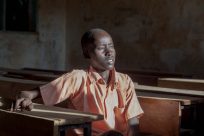
Refugee students among top scorers in Kenya’s national primary school exams
27 Nov 2017“My classroom was overcrowded. I had to wake up very early to get to school as early 6.00am or 5.00am so that I could reserve my seat.”
-
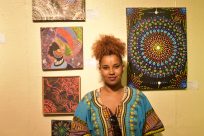
Refugee Artists in Kenya celebrate 3rd year of self-reliance-driven music and arts project
24 Nov 2017“One of the most important expressions of human beings is through art. For the past three years we have seen better quality of work from both the visual artists and musicians.”
-
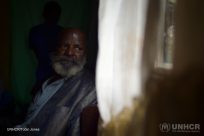
The Shona: A stateless community in Kenya yearning to gain citizenship
9 Nov 2017“Even in Zimbabwe they cannot accept me. I am considered to be a foreigner. They cannot accept me. I was born in Kenya.”
-
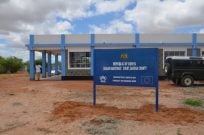
Refugees in Dadaab welcome opening of new courthouse
8 Nov 2017“Now we will not have to wait for months to access justice.”
-
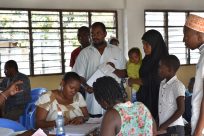
Birth registration drive combats statelessness among Kenya’s coastal Pemba community
6 Nov 2017“Birth registration is important because it’s the first step in ending statelessness in the country.”
-
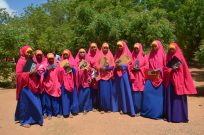
KCPE Examinations kick off in Dadaab Camps
31 Oct 2017“Amidst all manner of unprecedented challenges, students in Dadaab have exhibited resilience and have prepared well for this year’s exams.”
-
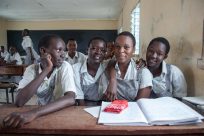
Learners in Kakuma Sit for their KCPE Examinations
31 Oct 2017Zawadi Wahanga, a refugee from Congo, is among more than 55 students from the Angelina Jolie Girls Boarding School in Kakuma Refugee camp, who will sit the national Kenya Certificate of Primary Education (KCPE), exam tomorrow, Tuesday, 31st of October. Zawadi says she wants to be an engineer when she […]
-

Congolese asylum seeker in Kenya changing lives through a music school, despite odds
25 Oct 2017“I want to assist refugees so that they do not waste their talents or become idle.”
-

Refugee artists showcase their talent in Dadaab gala
19 Oct 2017“We must continue to come up with more avenues to tap the amazing talent and skills that refugees have.”
-

World Mental Health Day Marked in Dadaab
12 Oct 2017Refugees in Dadaab marked World Mental Health Day on 10th October 2017 by looking at the treatment of people suffering from mental problems. Over 4500 refugees in Dadaab have been diagnosed with some sort of mental condition. During the day there were speeches and performances by refugees, refugee leaders, medical […]
